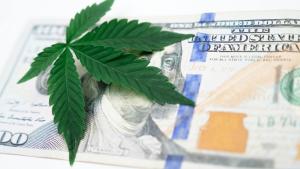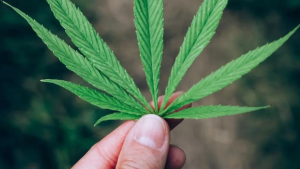With the passage of the Agriculture Improvement Act of 2018 (“Farm Bill”), it is now legal to cultivate hemp, in what is projected to be a massive economic boon for the cannabidiol (or “CBD”) industry. CBD is a Phyto cannabinoid discovered in 1940. It is one of some 113 identified cannabinoids in cannabis plants, accounting for up to 40% of the plant’s extract.
With the farm bill legalizing the cultivation and sale of hemp, growers, entrepreneurs and investors look to cash in on a crop that has been around since our nation’s founding but was made illegal to grow and trade in 1937. Hemp was even classified as a Schedule 1 drug in 1970.
Proponents of CBD and CBD-infused products claim it helps calm nerves, reduce stress, and alleviate pain, all without the high associated with marijuana. Typically, and as is required by the farm bill, hemp is a species of cannabis grown with less than 0.3 percent tetrahydrocannabinol (“THC”), the principal psychoactive constituent of cannabis.
CBD production in the U.S. is exponentially expanding, and as more and more products come online with CBD as an active ingredient, it can be found in everything from gummies, cookies, coffee and tea, to lipstick, shampoo, creams, and oils.
While this new hemp legalization is good for CBD manufacturers and entrepreneurs, the end product’s legal status is still murky. The Drug Enforcement Administration considers CBD illegal, though it rarely enforces laws against its use or sale. So far, the DEA has remained salient on whether they will reclassify CBD’s legal status after passage of the farm bill.
Another federal agency, the Food and Drug Administration (“FDA”), has weighed in with a statement from Commissioner Scott Gottlieb that indicates it still considers CBD a drug, and that it is illegal to put it in foods or health products without FDA approval.
“Selling unapproved products with unsubstantiated therapeutic claims is not only a violation of the law but also can put patients at risk, as these products have not been proven to be safe or effective,” Gottlieb wrote. “At the same time, we recognize the potential opportunities that cannabis or cannabis-derived compounds could offer and acknowledge the significant interest in these possibilities. We’re committed to pursuing an efficient regulatory framework for allowing product developers that meet the requirements under our authorities to lawfully market these types of products.”
Legalization will Jumpstart the CBD Industry
The rise in CBD production and use is beginning to create an industry all its own, with a broad range of public acceptance. Hemp legalization will create a whole new generation of farmers and provide existing farms with an opportunity to cultivate a new and eco-friendly crop that may be more profitable than traditional crops.
Previously, cultivators faced barriers to growing hemp — namely, restricted banking, risk of federal confiscation, lack of insurance options, and other issues that made hemp production financially prohibitive. The farm bill removes these restrictions, putting the US Department of Agriculture and state departments in charge of its oversight. Many states have already passed legislation to create rules for the production and sale of hemp and hemp-based products.
As CBD begins to go mainstream, new CBD products have been hitting the market in record numbers. The CBD industry sold over $350 million worth of products last year, and analysts predict that number to grow to $1 billion by 2020.
While proponents of CBD claim there is a long history of using the holistic properties of cannabidiol, most medical researchers believe more work needs to be done before the efficacy of CBD products can be confirmed.
With hemp legalization and expansion of CBD production, most analysts agree that it will lead to increased mainstream research into its benefits, as well as open doors for greater investment into a brand new billion-dollar market.
Legal, Yet not Without Risk
While passage of the Farm Bill and President Trump’s signing the bill into law legalized the cultivation of hemp and the manufacture and sale of products containing CBD, risks remain. Growers, manufacturers, sellers and financiers of hemp and CBD products, however, can mitigate those risks.
With state legalization of medicinal and recreational marijuana, Federal drug enforcement officials and the Department of Justice have mostly taken a “hands-off” approach – deferring to state law provided growers and sellers are complying with state regulatory schemes. Legal observers anticipate that these Federal authorities will pursue a similar approach to hemp and its lucrative byproducts. Entrepreneurs interested in investing in this space need to consult with legal counsel to ensure that their investment platforms follow state law, and that deficiencies in compliance are remedied quickly. Investors need to get informed and stay vigilant retarding the regulatory obligations of their investments.
Further, and unlike recreational or medicinal marijuana, investors also need to consider Federal food and drug law compliance. With the FDA regulating the use of CDC in consumer applications, manufacturers and sellers of CDC-based products face enforcement actions and the possible seizure of assets when their products are not approved. Again, investors are urged to get informed and consult with legal counsel or an FDA regulatory consultant prior to investing in an unapproved CDC application.






